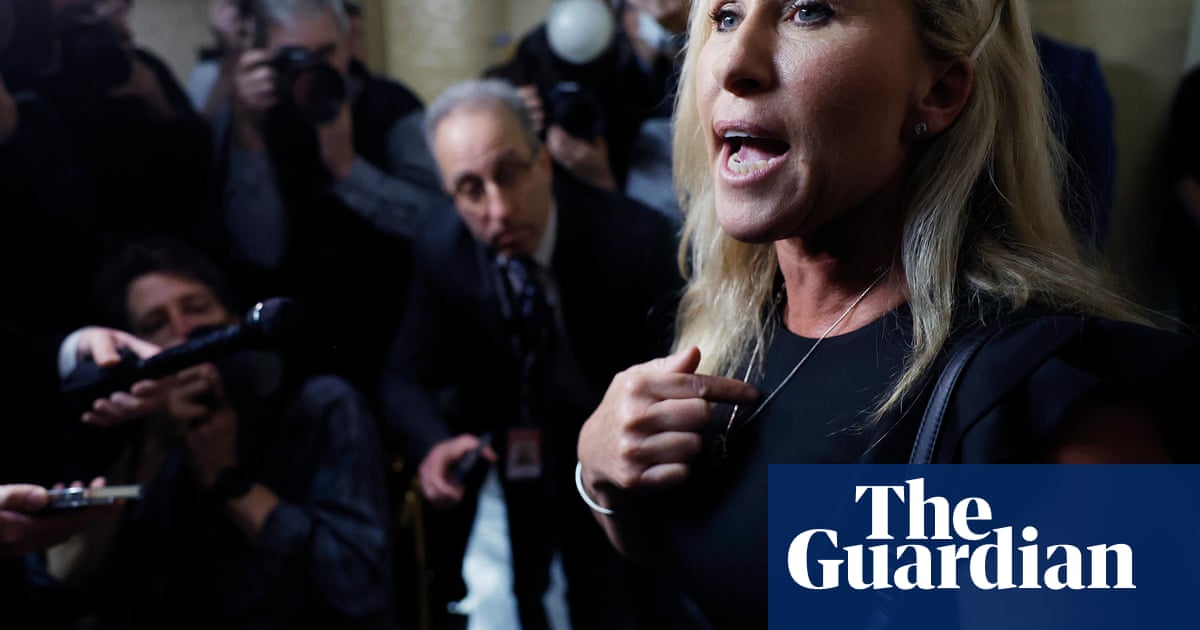Marjorie Taylor Greene’s “Rogues’ Gallery” and Congressional Hearing on NGOs
Background to the Hearing
The far-right congresswoman Marjorie Taylor Greene has become a central figure in the political conversation surrounding non-governmental organizations (NGOs) in the United States. As the chair of the House of Representatives’ Delivering on Government Efficiency (Doge) subcommittee, Greene has curated a lineup of individuals characterized as extremists and conspiracy theorists to support a crackdown on NGOs. A forthcoming hearing titled “Public Funds, Private Agendas: NGOs Gone Wild” aims to air concerns about alleged misuse of federal taxpayer dollars by these organizations.
The Focus of the Hearing
The stated objective of the hearing is to expose what Greene and her subcommittee describe as the "radical" agendas supposedly advanced by NGOs, including initiatives like "open borders" and critiques of the Green New Deal. The framing aligns with a broader narrative among some Republican circles, arguing that taxpayer funds are being diverted to support politically motivated groups, enriching their affiliates while neglecting public service obligations.
Criticism from Congressional Integrity Project
A memo from the Congressional Integrity Project (CIP) provides a stark counter-narrative, branding the upcoming hearings as “political theater.” The CIP labels Greene’s efforts as a form of “weaponized government oversight,” especially given the significant federal funding received by Republican affiliates and right-wing organizations. In fact, while Greene and her allies target civil society organizations for receiving federal grants, the memo points out their own networks have benefitted from billions in government contracts and subsidies.
The Witness Lineup
The witnesses scheduled to speak at the hearing include Mark Krikorian, executive director of the Center for Immigration Studies; Daniel Turner, founder of Power the Future; and Scott Walter, president of the Capital Research Center. Each has a controversial background, raising questions about their suitability as impartial analysts regarding federal funding.
Mark Krikorian and the Center for Immigration Studies
Mark Krikorian is at the forefront of immigration discourse, representing the Center for Immigration Studies (CIS), which has been flagged as a hate group by the Southern Poverty Law Center. Krikorian has shared troubling statements, including claims that Haiti’s problems are due to insufficient colonization. The CIS has also reportedly received more than $700,000 in Paycheck Protection Program (PPP) loans and is currently under investigation for allegedly misleading authorities to obtain these funds—an ironic twist for a hearing intended to critique government waste.
Daniel Turner’s Background and Allegations
Daniel Turner comes with a history as a political operative, connected to the Charles Koch Institute before founding Power the Future, an organization known for attacking environmentalists and disputing climate science. The CIP questions his integrity, noting that Koch’s ventures have profited considerably from government subsidies that he now denounces. Turner’s positions align closely with climate change denial, and his rhetoric equates climate advocacy with a slide toward socialism, calling into question his objectivity.
Scott Walter and the Capital Research Center
Scott Walter leads the Capital Research Center, an organization described by the CIP as secretive, particularly regarding its funding sources. Their allegations detail how Walter has funneled significant anonymous donations to groups connected to Supreme Court Justice Clarence Thomas, raising ethical concerns about potential conflicts of interest. Walter’s history includes controversial remarks on race, gender, and sexuality, illustrating a pattern of behavior that has drawn public scrutiny.
The Underlying Implications
The criticisms from the CIP highlight a perceived hypocrisy within Greene’s subcommittee. While purporting to seek accountability and transparency in NGO funding, they themselves are accused of benefiting from the very federal largesse they criticize. This irony points to a broader struggle for narrative dominance in U.S. politics, where accusations of corruption and misuse often mirror actions within opposing camps.
Public Reaction and Broader Context
As Greene prepares for the hearing, the stakes appear high for both her and the organizations involved. The event promises to stir debate not only about the future of NGOs but also about the ethical conduct of government representatives and their constituents. The growing tensions encapsulate broader issues relating to funding, transparency, and accountability in American governance. The outcomes remain uncertain, with public scrutiny likely to intensify as the hearing unfolds and narratives continue to develop.


